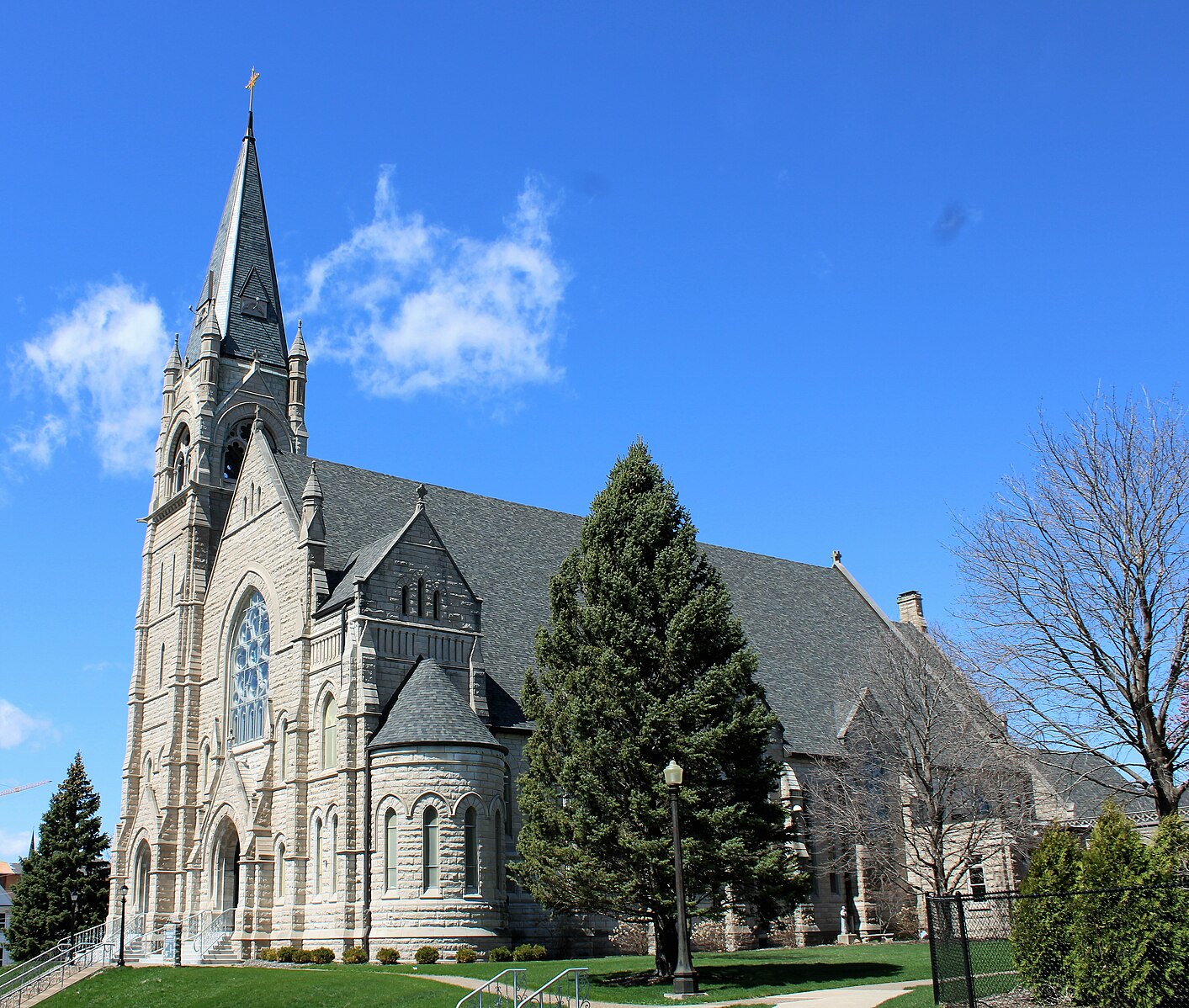Over the past few years, more than 40 U.S. dioceses have issued policies on gender identity and LGBTQ expression in Catholic schools and parishes. As noted by Outreach, many of these diocesan policies have been criticized as imposing significant restrictions on transgender individuals, specifically.
But with its publication this month of pastoral guidelines for accompanying “sexual and gender minorities,” the Diocese of Davenport, Iowa has departed from that trend with a balanced, more compassionate approach to this admittedly controversial topic. This document has been highly important for people who have long hoped for the church to adopt a more positive approach to LGBTQ people, especially transgender people.
In January 2021, Archbishop Thomas Zinkula of Dubuque, who then led the Diocese of Davenport, formed a drafting committee to address pastoral issues related to sexual orientation and gender identity in schools and parishes. While the committee did the expected study of relevant church documents, its approach went far beyond that, engaging in an extensive, two-year process of consultation. The committee sought out and interviewed LGBTQ individuals and their families, medical and psychological experts who care for them and church ministers who accompany them.
The committee sought out and interviewed LGBTQ individuals and their families, medical and psychological experts who care for them and church ministers who accompany them.
My wife and I were among the many people who were consulted during this process. We were given the opportunity to present our experiences of the past dozen years journeying with our adult transgender daughter and ministering to other Catholic families in similar situations. We were grateful and humbled that the committee clearly heard what we had to say, including our recommendations for what these guidelines might look like. With the benefit of hindsight, these consultations were a great example of exactly what a synodal church should look like.
The stated intention of this process, according to Archbishop Zinkula, was “to find a balance in addressing the real pastoral needs of sexual and gender minorities, while remaining true to the teachings of our Catholic faith.” The committee concluded that a “one-size-fits-all” approach would not work. Rather, it would be necessary to accompany each person in their particular circumstances, focusing on pastoral discernment on a case-by-case basis. The resulting guidelines are structured around five principals:
- Respect for the dignity of every person;
- Recognition that persons who experience gender discordance or differences in sexual orientation are real and do not choose this;
- Commitment to loving first and listening for deeper understanding;
- Commitment to involving others in the discernment process, including the individuals, their families and medical professionals and;
- A case-by-case approach with a willingness to make reasonable and appropriate accommodations
At first glance, these principals may not seem at all remarkable. In fact, since the Davenport document was released, I’ve seen some commentary with exactly that tone. Isn’t this what the Catholic Church routinely does in pastoral situations?
With the benefit of hindsight, these consultations were a great example of exactly what a synodal church should look like.
Many people would say that the answer to that question is yes, that is what pastoral care in the church looks like. And it certainly is true that people facing difficult decisions about complicated personal and family situations often find pastoral welcome in their local church. Ministers will accompany them in discerning a path forward that addresses their struggles and does so in the light of our faith. As Pope Francis has said repeatedly, the church should be like a field hospital, healing the wounds of the faithful.
Unfortunately, that type of pastoral care is not always the rule. In my experience, it is rarely (if ever) extended to transgender people. For a family that is already struggling with all the worries and ramifications of a loved one coming out as transgender, being met with a lack of understanding from their local church can be devastating.
When they discover that their diocese has a rigid policy excluding their loved one from the sacraments or pressuring them out of diocesan schools, all because of something that is not a matter of choice, it is no wonder that a family in this situation may be lost to the church forever.
The experiences of my own family confirm the damage that can be done by church policies short on understanding and compassion. We are blessed that our adult trans daughter is now thriving as she lives as her authentic self with the support and love of our family. But that was not always the case.
The beginnings of her journey were marked by severe depression and suicide attempts, in the face of the negative messages in the church and a fear of rejection by her very Catholic family. All that changed as we accompanied her on her journey, learned about the reality of transgender people and came to a place of acceptance, support and unconditional love for her.
The experiences of my own family confirm the damage that can be done by church policies short on understanding and compassion.
The Davenport guidelines have been issued while all eyes are on the Synod on Synodality. Two years ago, Pope Francis began the Synod with a homily that called us to focus on three words: encounter, listen and discern. If there is one feature of the Davenport guidelines that clearly separates it from other diocesan policies, it is the process that produced the guidelines—a process of encountering, listening to and discerning with transgender people and those who love and care for them.
Where there is a commitment to encounter, to love first and to listen, as outlined in the Davenport directive, then understanding and compassion will surely follow. On a personal level, it has been painful to experience in many church circles what I can only describe as a stunning lack of compassion for my transgender daughter and for all people impacted by gender identity issues.
In many of the academic debates about Christian anthropology and moral theology, in discussions about complementarity and gender theory, individuals who actually struggle with gender dysphoria seem to have been dismissed and forgotten.
The one aspect of the Davenport guidelines I find most significant is their formal recognition that those who experience gender dysphoria do not choose this path in life. The guidelines acknowledge that gender dysphoria can be a heavy cross to bear, and that transgender people deserve the same respect, love and understanding as anyone else.
The guidelines acknowledge that gender dysphoria can be a heavy cross to bear, and that transgender people deserve the same respect, love and understanding as anyone else.
I believe that embracing this basic understanding can be the beginning of a significant evolution of the church’s approach to gender identity issues, and the source of renewed hope that transgender people will someday feel greater welcome in the church.
And while we ponder these calls to encounter, listen, understand and discern, it never hurts to remind ourselves that there is one call we all share as Christians, one call that should be foundational to all pastoral guidelines or policies. This is the commandment to love one another as Christ loved us. Love comes first.
Updated October 26, 11:08 a.m.




